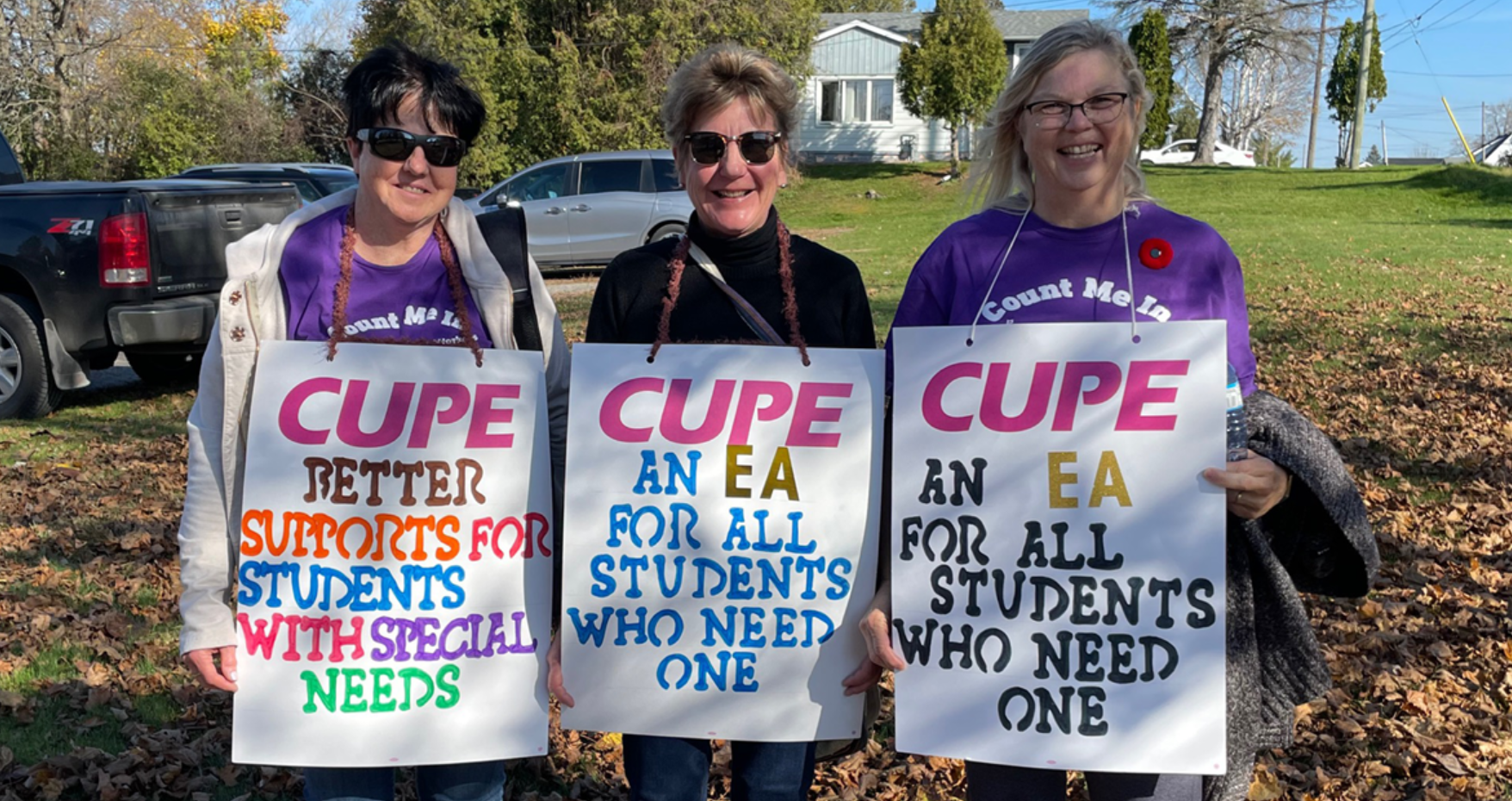The CUPE protest, GO Transit strike, and the notwithstanding clause—how they are affecting worker’s rights
The Ontario government rescinds Bill 28—a back-to-work legislation that was passed using the notwithstanding clause—as part of a deal with the CUPE to end education workers’ protest.
On November 7, 2022, the Canadian Union of Public Employees (CUPE) protest—which arose due to the labour union’s 11.7 per cent annual pay raise request for education and administrative workers falling through—came to an official end after Ontario Premier, Doug Ford, promised to rescind Bill 28, Keeping Students in Class Act. The bill was passed on November 3, 2022, through invoking the controversial notwithstanding clause.
Under Bill 28, any strikes concerning “employees of school boards who are represented by CUPE” will be forcefully ended. Additionally, education workers would be bound to a government proposed four-year agreement, and “workers could face fines of up to $4,000 per day if they strike,” reads a CBC article. The terms of the agreement would include a 2.5 per cent annual raise for workers with an income of less than $43,000, and a 1.5 per cent raise for the rest.
“We have received and can confirm that the premier will introduce and support legislation that will repeal Bill 28 in its entirety,” said Laura Walton, president of the CUPE, in a press conference, declaring the rationale behind ending the strike. On November 14, Bill 28 was rescinded by the government as promised.
The notwithstanding clause, also known as Section 33, comes from the Canadian Charter of Rights and Freedoms, a document representing the rights of Canadians under our system of liberal democracy. The clause outlines the power given to Canadian parliaments to override specific sections of the Charter, “namely section 2 (fundamental freedoms), sections 7 to 14 (legal rights) and section 15 (equality rights)” as denoted by the Government of Canada’s Charterpedia.
Democratic rights—like citizen participation, equality, and the right to vote, to name a few—are immune to the effects of the notwithstanding clause. Additionally, the clause is limited to five-year terms, ceasing in effect upon that period’s conclusion unless re-enacted. However, no judicial review can be called on legislation passed with the clause. Because the clause provides the ability for parliaments to disregard citizen’s rights and freedoms, it is intended to be used “only in most unusual and extenuating circumstances,” as stated by Wally Oppal, former Attorney General of British Columbia, in an interview with CBC.
Shortly after Ford’s decision to invoke the notwithstanding clause, criticism and concern around worker’s rights arose, including a negative reaction from the federal government. Prime Minister Justin Trudeau believed Ford’s use of the clause was “wrong and inappropriate.”
GO Transit went through similar circumstances in a battle for fair compensation. On November 7, 2022, at 12:01 a.m., 2,200 GO Transit workers walked out in protest after the Amalgamated Transit Union (ATU) Local 1587 and Metrolinx, the operator of regional transit for Greater Toronto and Hamilton Area, failed to reach a deal during the previous weekend.
In a CBC article, the ATU explained that there had been ongoing bargaining between the union and Metrolinx. Workers were concerned about being replaced with cheaper outside hires and wanted an increase in the number of full-time employment opportunities offered by Metrolinx. Additionally, the ATU claimed that the GO Transit workers have been working “without a contract since June 1,” while the negotiations began in April. However, Metrolinx issued a statement, stating that the workers had walked away from the midst of the negotiations and had declined a request to return to work.
The strike went on for four days, during which patrons of GO Transit were left scrambling to find alternative transportation. On November 11, GO Transit resumed services after Metrolinx issued a tentative contract with the ATU, ending the worker’s strike. The ATU said that the deal was reached as the worker’s concerns about employee safety were addressed.
The CUPE and GO Transit strikes, while having happened independently, invite a potential call to action for safeguarding worker’s rights and the Canadian democracy.

